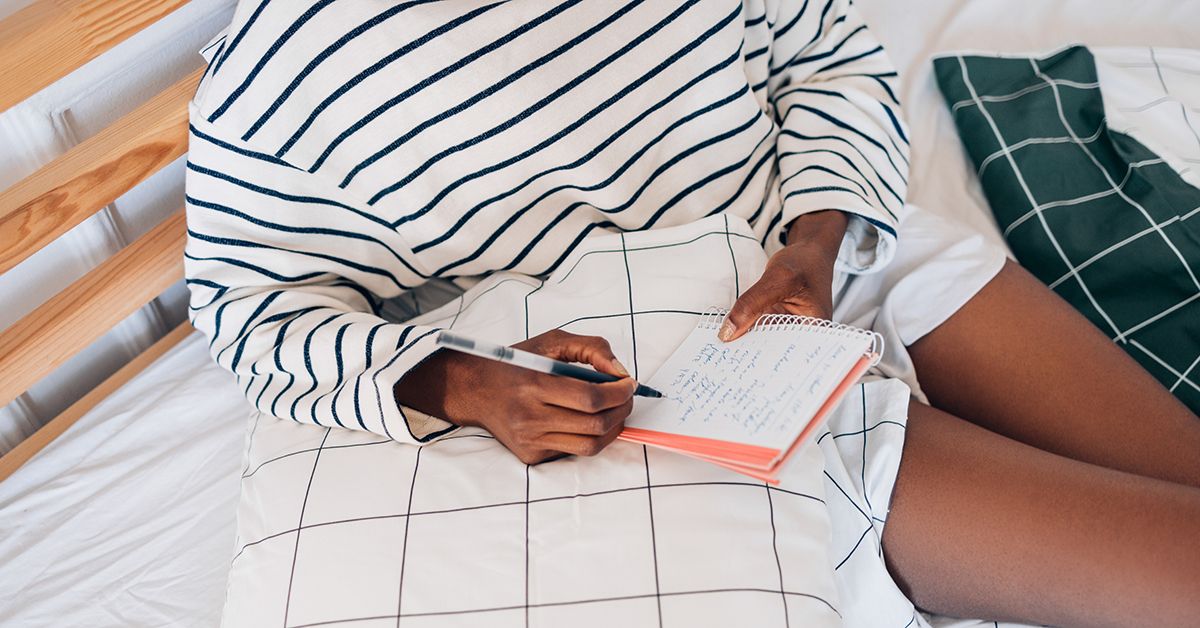What Is a Sleep Journal, and Why Do You Need One? …C0NTINUE READING HERE >>>
Sleep journalWhat to recordWhen to use oneSee a doctorOutlookFAQTakeaway
A sleep journal may help you identify your positive and negative sleep patterns. For great results, use one for at least a week.
Share on PinterestFreshSplash/Getty Images
Tracking your habits can be great for almost any health area, especially sleep. A sleep journal allows you to log bedtimes, duration and quality of sleep, and how factors like caffeine- and alcohol-containing drinks, medications, and exercise affect sleep.
Using a sleep journal for at least a week can help you identify patterns affecting your rest. The data it provides can help you and your doctor understand sleep problems. In fact, a 2022 study found that sleep tracking was a meaningful way to assess insomnia from the participants’ perspectives and resulted in useful information.
Learn more about sleep disorders.
What is a sleep journal?
Though you can purchase entire book-bound diaries created for tracking sleep, a sleep journal doesn’t have to be fancy (or even particularly long). It can be any digital or physical record of your sleep and the influences affecting it.
Some people may prefer to write a sleep journal as a narrative, writing sentences or paragraphs describing each day’s sleep patterns. Others may like the convenience of a graph or chart with simple boxes to check and numbers to fill in.
For example, the National Heart, Lung, and Blood Institute (NHLBI) has a free downloadable sleep journal template with spaces for the day’s date, number of caffeine– and alcohol-containing beverages, exercise times and lengths, naps, and a sleepiness rating.
Other useful diaries are available from the National Sleep Foundation (NSF) and the American Academy of Sleep Medicine.
Consider using a sleep-tracking app and a wearable device such as Oura, Calm, or SleepWatch to simplify things even further. A small 2023 study found that sleep-tracking apps helped people maintain consistent usage.
How do you use a sleep journal?
Sleep journal templates may include many factors that influence sleep. In general, though, some elements to track include:
total sleep hours per 24-hour periodsleepiness level throughout the daydaily medicationsnumber of caffeine- and alcohol-containing drinks and time consumedbedtimewake timeexercise type and durationsleep quality levelnapstime it takes to fall asleepnight awakenings
If you feel other factors (such as stress or caring for a young child) significantly affect your sleep, include them.
When do you need to use a sleep journal?
Some sleep journals provide instructions on logging your information. For example, the NHLBI journal has spaces to fill in at night and in the morning.
If you’re without pre-set directions, though, it’s probably great to track your sleep data right before bed and shortly after waking in the morning. A small 2024 study found that people had difficulty recalling sleep details when they didn’t complete their journal entries first thing in the morning and just before turning in at night.
When to see a doctor if you have trouble sleeping
The NSF mentions that chronic insomnia involves having trouble sleeping at least 3 nights per week for at least 3 months. But you don’t have to reach this point before getting help from a healthcare professional. Any time sleep problems interfere with your daily activities, it’s a good idea to get medical attention.
What’s the outlook for people with trouble sleeping?
Sleep problems can interfere with your quality of life, and some, like sleep apnea, may link with chronic medical conditions. Contacting your doctor about sleep issues (and having your filled-in sleep journal handy when you do) can help get your nighttime rest back on a healthy, refreshing track.
Frequently asked questions
What does a sleep journal do?
A sleep journal can provide insights into the factors strongly influencing your sleep. When you use one for a week or longer, the experience can highlight patterns or connections you might not usually notice.
Why do I need 9 hours of sleep to feel rested?
The NSF considers getting 7 to 9 hours of sleep a typical adult sleep duration. So, although 9 hours is on the longer side, it’s still a healthy amount of sleep.
Is 12 hours of sleep too much?
Sleeping 12 hours per night falls above the NSF’s recommendations for adults. However, some world-class athletes sleep that much. Talk with your healthcare professional if you sleep this much regularly and remain sleepy during the day.
Takeaway
People have their own unique underlying causes of sleep troubles. Using a sleep journal for a week or two (or even longer) can help you realize what’s making you toss and turn. You can find solutions when you can identify the source of your sleep problems.
>
